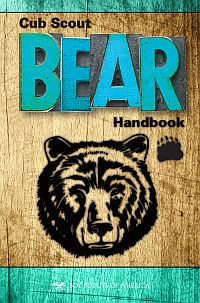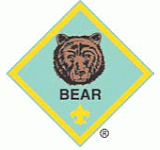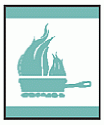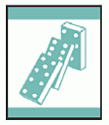Become A Sponsor
|
Why Ads
 |

Bear Elective Adventures
|
These were the requirements from
June 1, 2015
until the revisions made
on December 1, 2016
To see the CURRENT requirements,
Click
here.
There are 13 Elective Adventures in the Bear program:
- Baloo the Builder
- A Bear Goes Fishing
- Bear Picnic Basket
- Beat of the Drum
- Critter Care
- Forensics
- Make It Move
- Marble Madness
- Roaring Laughter
- Robotics
- Salmon Run
- Super Science
- A World of Sound
 |
- Discover which hand tools are the best ones to have in your
tool box. Learn the rules for using these tools safely. Practice
with at least four of these tools before beginning a project.
- Learn the steps of planning a building project and how to read
the instructions or drawings.
- Select and build one useful project and one fun project using
wood.
- Learn how to finish a wood project.
Workbook for use with these requirements:
PDF Format
DOCX Format
|
 |
- Discover and learn about three types of fishes in your area.
Draw a color picture of each fish, record what each one likes to
eat, and describe what sort of habitat each likes.
- Learn about your local fishing regulations with your leader
or a parent or guardian. List three of the regulations you learn
about and one reason each regulation exists.
- Learn about fishing equipment, and make a simple fishing pole.
Practice casting at a target 30 feet away. Teach what you have learned
to someone in your family, another Scout, or one of your friends.
- Go on a fishing adventure, and spend a minimum of one hour trying
to catch a fish. Put into practice the things you have learned about
fish and fishing equipment.
Workbook for use with these requirements:
PDF Format
DOCX Format
|
 |
- Do the following:
- Create your own Bear Cookbook using at least five recipes
you can cook or prepare either on your own or with some adult
help. Include one page with information about first aid. You
should include one recipe for a breakfast item, one for lunch,
and one for dinner, and two recipes for nutritious snacks.
- Prepare for cooking by explaining the importance of planning, tool selection, and cooking safety.
- Go on a grocery shopping trip with your den or with an adult.
Check the price of different brands of one single item, and
compare the price of a ready-made item with the price of the
same item you would make yourself.
- With the help of an adult, select one food item, and follow
a recipe to prepare it for your family in your kitchen. Clean up after the preparation
and cooking.
- With the help of an adult, select one food item, and follow
a recipe to prepare it outdoors for your family or den. Clean up after the preparation
and cooking.
- Select and prepare two nutritious snacks for yourself, your
family, or your den.
Workbook for use with these requirements:
PDF Format
DOCX Format
|
 |
- Learn about the history and culture of American Indians who
lived in your area at the time of European colonization.
- Write a legend.
- Make a dream catcher.
- Make a craft similar to one made by American Indians.
- Make a drum. Once your drum is complete, create a ceremonial
song.
- Visit an Order of the Arrow dance ceremony or American Indian
event within your community.
- Learn and demonstrate ceremonial dance steps.
- Create a dance.
Workbook for use with these requirements:
PDF Format
DOCX Format
|
 |
- Care for a pet for two weeks. Make a list of tasks you did to
take care of the pet. If you do not have a pet, research one that
you would like to have and write about the care it needs.
- Learn more about your pet or a pet you would like to have. List
three interesting facts that you learned about your pet.
- Make a poster about your pet or a pet you would like to own.
Share your poster with your den, pack, or family.
- Do your best to train a pet to perform a trick or follow a simple
command, and explain how you trained it. (If your pet is a hermit
crab, fish, snake, or the like, you may skip this requirement.)
- Tell three ways that animals can help people.
- Tell what is meant by an animal being "rabid." Name some animals
that could have rabies. Explain what you should do if you are near
an animal that might be rabid.
- Visit with a local veterinarian or animal shelter caretaker.
Find out what types of animals he or she might see on a regular
basis. Ask what type of education is needed to become a veterinarian
or shelter caretaker. Why did he or she choose to pursue this career?
Workbook for use with these requirements:
PDF Format
DOCX Format
|
 |
- Talk with your family and den about forensics and how it is
used to help solve crimes.
- Analyze your fingerprints.
- Learn about chromatography and how it is used in solving crimes.
Do an investigation using different types of black, felt-tip markers.
Share your results with your den.
- Do an analysis of four different substances: salt, sugar, baking
soda, and cornstarch.
- Make a shoe imprint.
- Visit the sheriff's office or police station in your town. Find
out how officers collect evidence.
- Learn about the different jobs available in forensic science.
Choose two, and find out what is required to work in those jobs
. Share what you learned with your den.
- Learn how animals are used to gather important evidence. Talk
about your findings with your den.
Workbook for use with these requirements:
PDF Format
DOCX Format
|
 |
- Create an “exploding” craft stick reaction.
- Make two simple pulleys, and use them to move objects.
- Make a lever by creating a seesaw using a spool and a wooden
paint stirrer. Explore the way it balances by placing different
objects on each end.
- Do the following:
- Draw a Rube Goldberg–type machine. Include at least six
steps to complete your action.
- Construct a Rube Goldberg–type machine to complete a task
assigned by your den leader. Use at least two simple machines
and include at least four steps.
Workbook for use with these requirements:
PDF Format
DOCX Format
|
 |
- Discuss with your family and den the history of marbles, such
as where and when the game began. Talk about the different sizes
of marbles and what they are made of and used for.
- Learn about three different marble games, and learn to play
the marble game “ringer.” Learn how to keep score. Learn and follow
the rules of the game. Play the game with your family, friends,
or your den.
- Learn four or five words that are used when talking about marbles.
Tell what each of the words means and how it relates to playing
marbles. Share this information with your den.
- With the help of an adult, make a marble bag to hold marbles.
- With your den or family, make a marble obstacle course or marble
golf course. Share what you create. Invite everyone to go through
your course.
- Create your own game using marbles, and design rules for playing
the game. Share the game you created with your den, family, or friends.
Explain the rules and how to play the game.
- With your den or family, create a marble race track. Have at
least two lanes so you can race your favorite marbles against each
other.
- Make a marble maze.
Workbook for use with these requirements:
PDF Format
DOCX Format
|
 |
- Think about what makes you laugh. Write down three things that
make you laugh.
- Practice reading tongue twisters.
- Create your own short story. Remove some nouns, verbs, adjectives,
and adverbs from the story, leaving blanks. Without telling the
story, have a friend insert his or her own nouns, verbs, adjectives,
and adverbs in the story you created.
- With a partner, play a game that makes you laugh.
- Share a few jokes with a couple of friends to make them laugh.
- Practice at least two run-ons with your den, and perform them
at a pack meeting or campfire program.
Workbook for use with these requirements:
PDF Format
DOCX Format
|
 |
- Identify six tasks performed by robots.
- Learn about some instances where a robot could be used in place
of a human for work. Research one robot that does this type of work,
and present what you learn to your den.
- Build a robot hand. Show how it works like a human hand and
how it is different from a human hand.
- Build your own robot.
- Visit a place that uses robots.
Workbook for use with these requirements:
PDF Format
DOCX Format
|
 |
- Explain the safety rules that you need to follow before participating
in boating.
- Identify the equipment needed when going boating.
- Demonstrate correct rowing or paddling form. Explain how rowing
and canoeing are good exercise.
- Explain the importance of response personnel or lifeguards in
a swimming area.
- Show how to do both a reach rescue and a throw rescue.
- Visit a local pool or swimming area with your den or family,
and go swimming.
- Demonstrate the front crawl swim stroke to your den or family.
- Name the three swimming ability groups for the Boy Scouts of
America.
- Attempt to earn the BSA beginner swimmer classification.
Workbook for use with these requirements:
PDF Format
DOCX Format
|
 |
- Make static electricity by rubbing a balloon or a plastic or
rubber comb on a fleece blanket or wool sweater. Explain what you
learned.
- Conduct a balloon or other static electricity investigation
that demonstrates properties of static electricity. Explain what
you learned.
- Conduct one other static electricity investigation. Explain
what you learned.
- Do a sink-or-float investigation. Explain what you learned.
- Do a color-morphing investigation. Explain what you learned.
- Do a color-layering investigation. Explain what you learned.
Workbook for use with these requirements:
PDF Format
DOCX Format
|
 |
- Make an mbira.
- Make a sistrum.
- Make a rain stick.
Workbook for use with these requirements:
PDF Format
DOCX Format
|
Source: Cub Scout Bear Handbook (#33451 - SKU 620136)
Page updated on:
December 16, 2016
|






















